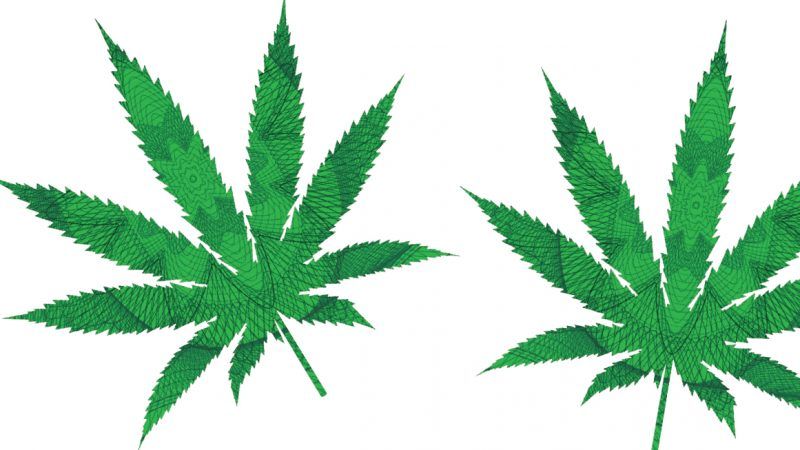Congress Might Finally Give the Pot Industry Access to Banks

Congress passed its first ever standalone bipartisan marijuana legalization bill in 2019. The House of Representatives voted in September to approve the Secure and Fair Enforcement (SAFE) Banking Act, a bill that would allow state-legal marijuana businesses to access financial institutions without running afoul of federal law. Currently, nearly all transactions carried out by such businesses must happen in cash: Due to the federal prohibition on marijuana, any financial institution that does business with a pot shop could be charged with violating the federal Controlled Substances Act, the USA PATRIOT Act, the Bank Secrecy Act, and/or the Racketeer Influenced and Corrupt Organizations Act.
Allowing marijuana businesses access to the banking system would make it easier for them to pay their taxes and their employees. Supporters say it would also cut down on crime. "These businesses and their employees become targets for murder, robbery, assault, and more by dealing in all cash," Rep. Ed Perlmutter (D–Colo.), the bill's sponsor, said just before the House voted for it, 321–103.
The bill's movement through the Senate could be more fraught. Senate Banking Committee Chairman Mike Crapo (R–Idaho) initially promised to hold a vote on the SAFE Banking Act. But in early November, he said that impeachment proceedings might force a postponement until 2020. No vote was scheduled as of press time. With only four Senate GOP co-sponsors, the bill faces an uphill climb.
Even among proponents of marijuana legalization, there are mixed feelings. The Drug Policy Alliance and several allied groups sent a letter to House leaders before the September vote urging a more holistic approach. The worry is that passage of the SAFE Banking Act could reduce the momentum for more important reforms, such as the Marijuana Opportunity Reinvestment and Expungement (MORE) Act, which would completely decriminalize marijuana, remove the drug from Schedule I of the Controlled Substances Act, and expunge many marijuana offenses.
It's a classic legislative conundrum. The banking bill could very well have enough support to become law, but it's not ideal. The more comprehensive bill, however, is certain to have less support from lawmakers—and maybe not enough to pass either chamber.
Still, the passage of a bill aiming to let states and individual businesses ignore the federal government's outdated stance toward marijuana is both historic and significant. "American voters have spoken and continue to speak," Perlmutter said on the House floor, just before the vote. "Prohibition is over."
Not quite. But we're slowly getting there.


Show Comments (19)